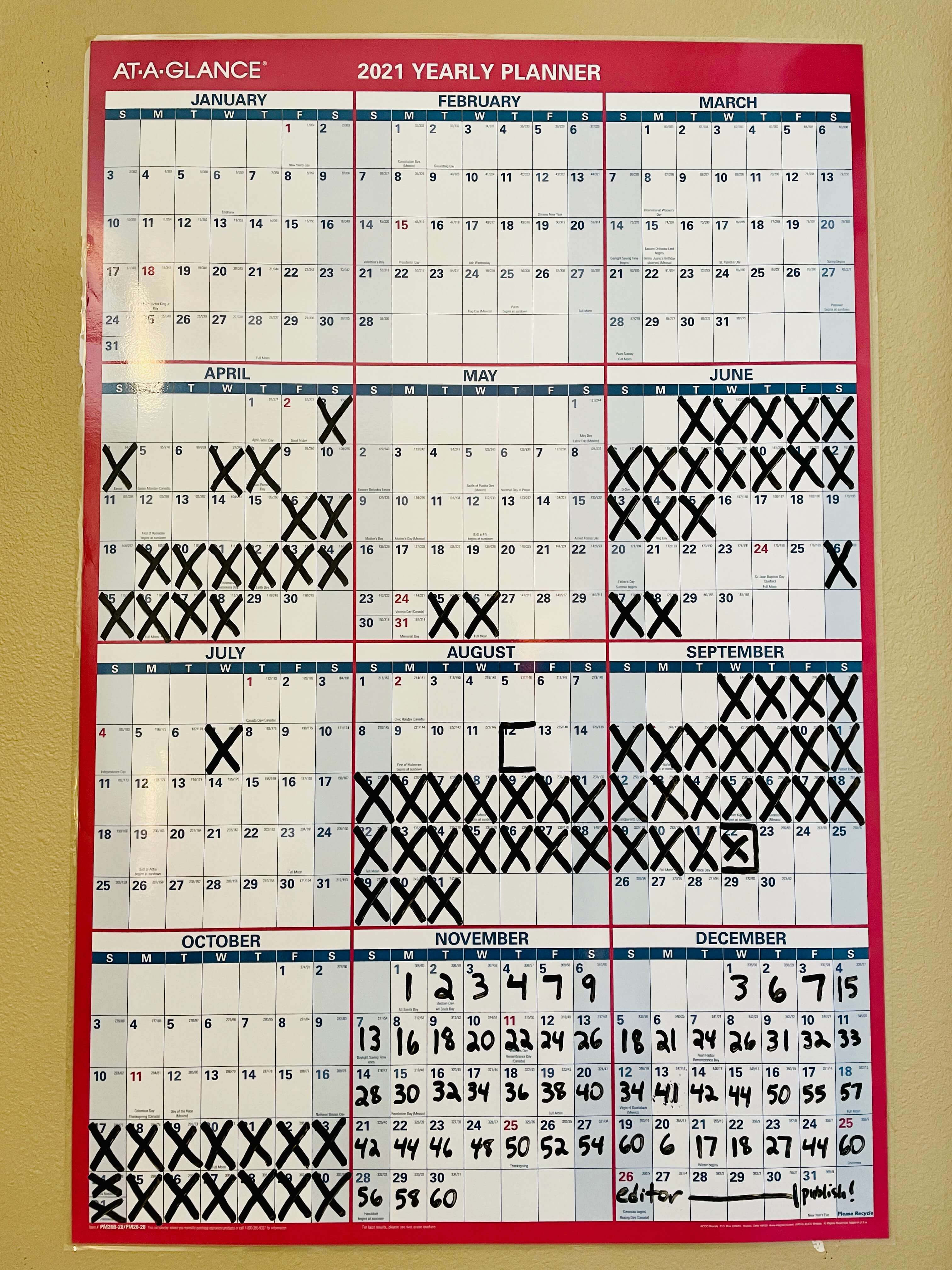I have good news to share: I’ve just spent the last 60 days finishing the first draft of the next Blake Jordan novel! I still need to write the second, third, and final drafts, but having a finished draft I can start working on improving is a great feeling. I’m thrilled!
Most writers aren’t going to tell you this, but I will… whenever I write a new story and see it published and read the reviews, I often think to myself: Can I do it again?
Which has made me do a lot of thinking about habits and how we spend our days. Because when I look at my wall calendar where I mark a big X on each day I wrote, there are a lot of blanks. All of January, all of February, and all of March. Two rows of Xs in April, then two weeks of blanks, all of May is blank, and all of June is also blank.
In other words, I only wrote for two weeks in the first six months of the year…
That’s when I realized, if I don’t act soon, I might not finish my book this year.
July 1st I committed to writing 1,000 words a day, every day, rain or shine, whether I felt like it or not, no matter what was going on, no matter if I knew where I was going with the story, or if I was writing by the seat of my pants. It’s best to plan your work, but if that’s taking too long, I’m starting to learn it’s best to just get started, ready or not.
That was also when my youngest son, who’s really into RL Stine books and can’t believe I met him in New York a few years back, hinted that it would be cool if I wrote a short story for him for his tenth birthday. “Write a book like RL Stine’s,” he’d said.
So in addition to my daily 1,000 word goal for the new Jordan novel, and all of my other daily responsibilities, I wrote ANOTHER thousand words every day for ten days for the “KL Fite” short story, and finished it the night before his tenth birthday. And my son loved the story! Watching him listen to my wife read a chapter every night was one of the best experiences ever as they laughed at some of the events that took place and he begged for Missy to read, “Just one more chapter,” before going to bed. As a writer, when you write what you think is a funny line that makes you laugh, or a clever turn of events, you imagine the reader’s reaction, but you never see it in real time.
Except, in this case, I did.
And it made my heart very happy.
Three years ago, I read a really interesting book called Atomic Habits by James Clear. What stuck with me the most was the idea of the compounding effect. Writing a thousand words today won’t change my life and won’t make much of a difference in a finished novel. But writing a thousand words today, tomorrow, and every day can.
If you want to change something in your life, if you have a big goal you’re not sure how to turn into a reality, try creating a tiny habit, a goal you can reach daily. You’ll be amazed at what you can accomplish when those daily wins all add up. It compounds.
Tonight, I’m meeting with my editor to tell her about the new story and to make sure I don’t have any plot holes or things to tighten up. Then I’ll start on draft #2. With any luck, I’ll have Blake Jordan #9 ready for you in a few months. Then again, luck has nothing to do with it. When we commit to a tiny daily habit, finishing is inevitable.
I hope you enjoyed the behind-the-scenes how my stories get created, and I hope it inspires you with your own goals. You can do it, too. One tiny habit at a time. -Ken
